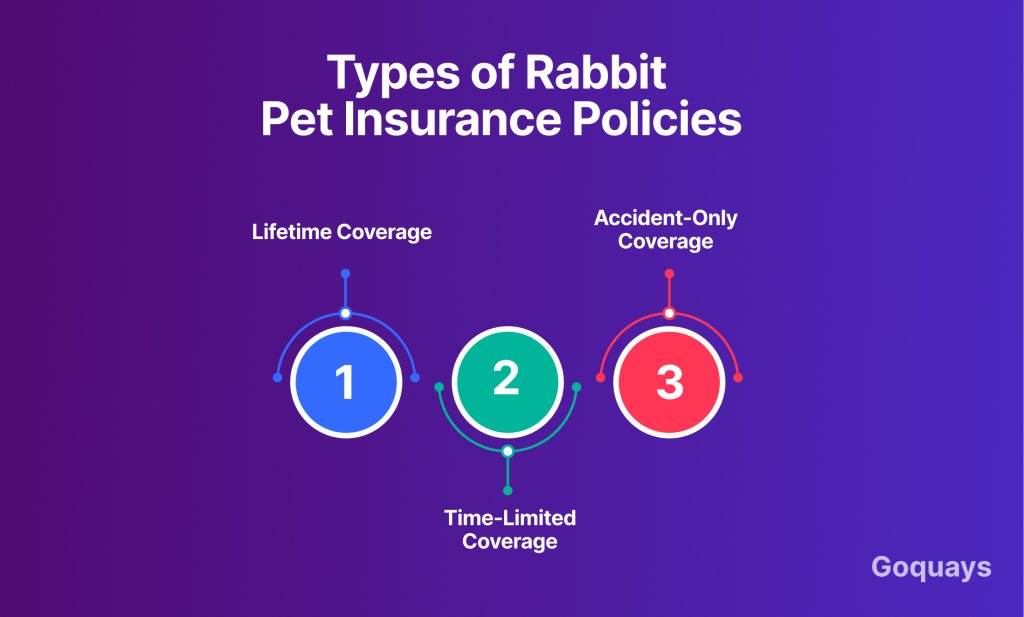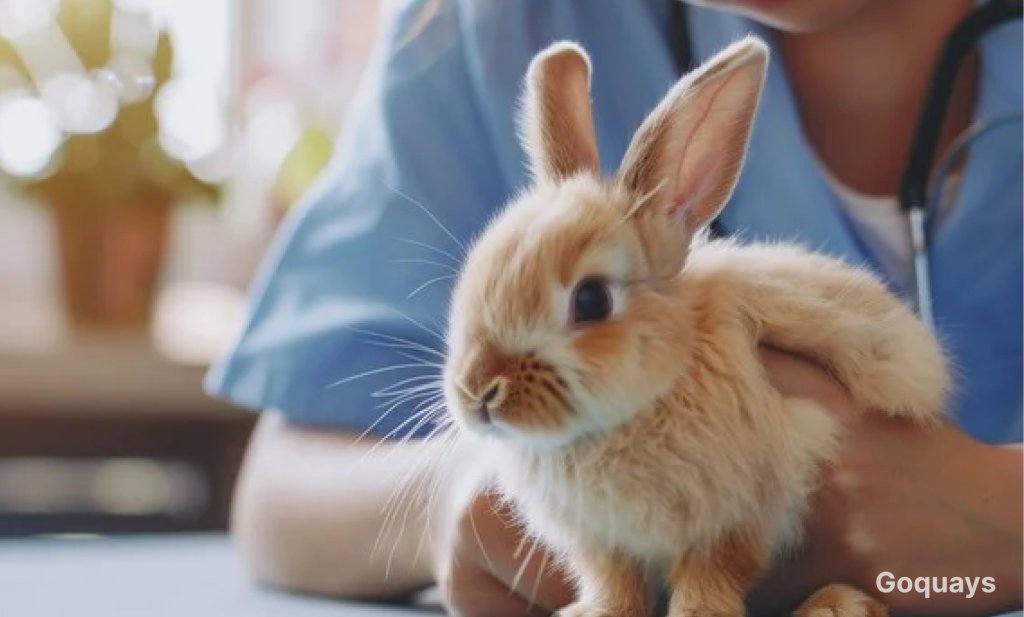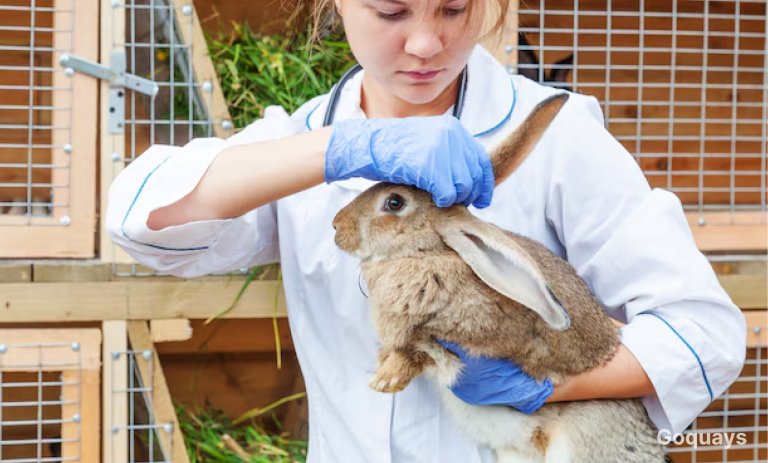Do you have a bunny or two running around in your garden or perhaps you’re wondering if this tiny furry animal is the right pet for you? Are worried about how to purchase insurance for your rabbit and wondering if the insurance will cover routine care for your beloved pet. Rabbits are intelligent, adorable, and affectionate pets that need special attention.
Rabbits are very cute animals that make a good addition to any family, they are a constant source of joy as they bink around the house or snuggle up for a nap. To remain happy and healthy, rabbits require routine vet examinations, vaccinations, and medical care just like every other pet.
Although most people think of pet insurance in relation to dogs and cats, many pet insurance companies also provide coverage for rabbits. However, what is covered by rabbit pet insurance, and is it worthwhile to purchase it? We’ll break things down for you in this article.
Understanding Rabbit Pet Insurance
Rabbit pet insurance is intended to assist in paying for unanticipated veterinary expenses, guaranteeing that your pet receives the care they require without being a burden on your budget. Many pet insurance providers now offer coverage particularly for rabbits, even though pet insurance is typically thought of in relation to cats and dogs. Because rabbits are fragile creatures who are vulnerable to a number of health problems, getting the appropriate insurance can literally and financially save you a lot of stress
Why Do Rabbits Need Pet Insurance?
Rabbits are considered exotic pets, which means they usually require specialised veterinary care, compared to cats and dogs. If they become sick, their health can rapidly worsen, and simple ailments like respiratory infections, dental disease, or gut stasis can lead to huge vet expenses. Many rabbit owners find pet insurance to be an appealing option because emergency care, hospital stays, and surgeries can cause financial burden if your rabbit is not insured.
How Does Rabbit Pet Insurance Work?
Insurance plans for rabbits’ function similarly to those for other animals. In exchange for your monthly or yearly premium, the insurance company will pay for qualified veterinarian expenses in accordance with the conditions of the policy. Your rabbit’s insurance may cover accidents, illnesses, and in certain situations, alternative therapies, depending on the type of policy you select. Standard plans, however, typically do not cover routine care, such as vaccinations, dental checks, and infection prevention.
Types of Rabbit Pet Insurance Policies

Generally, there are three main types of rabbit insurance
- Lifetime Coverage: This is the most comprehensive option, covering veterinary bills for accidents and illnesses for the duration of your rabbit’s life, provided you renew the policy annually.
- Time-limited Coverage: This type of insurance covers accidents and illnesses for a predetermined period of time (usually 12 months) after the condition is diagnosed, after which it is no longer covered.
Accident-Only Coverage: This is the most basic and least expensive option, covering only injuries from accidents but not illnesses.
Choosing the Right Policy
Before you decide on the policy that is right for your rabbit, compare policies from different providers using criteria such as coverage limits, exclusions, waiting periods, and excess fees. Additionally, some providers include wellness packages as optional extras that you can decide to add to your policy or leave off. Having a grasp of how rabbit pet insurance works will enable you to make an informed decision about whether rabbit pet insurance is the best option for your pet.
What Does Rabbit Pet Insurance Typically Cover?
Rabbit pet insurance usually covers the following:
Accidents and Injuries: rabbits are very playful animals and because of this, they are prone to injuries and accidental falls. Insurance providers will pay for the treatment if your rabbit sustains injuries in an accident or from a fall.
Illnesses and Medical Conditions: Rabbits frequently suffer from ailments such ear infections, intestinal stasis, and lung infections. Insurance can assist in paying for necessary treatments, prescription drugs, and visits to the vet.
Surgery and Hospital Stays: if your rabbit requires surgery as a result of an illness or accident, insurance will cover for diagnostic tests, the procedure and hospital stay.
Prescription Drugs: some rabbits are on prescription drugs due to severe or chronic conditions. Some insurance plans pay for such drugs.
Emergency Vet Visits: insurance pays for emergency care if your rabbit needs urgent medical attention.
Does Pet Insurance Cover Routine Care for Rabbits?
Maintaining the health of your rabbit depends heavily on routine care, sometimes referred to as preventive care. This covers routine examinations, immunisations, dental care, and preventing invasion by parasites. Routine care is not, however, covered by the majority of conventional rabbit pet insurance policies as part of their basic coverage. Rather, the main focus of pet insurance is on unexpected medical conditions, accidents, and emergency care.
What is Considered Routine Care for Rabbits?
The preventive steps taken to ward off disease and maintain general health are referred to as routine care. The following are some essential components of regular rabbit care:
- Annual Veterinary Checkups: Routine medical exams assist in identifying any early symptoms of disease before they get worse or become major health challenges.
- Vaccinations: Rabbits require protection against common diseases like Rabbit Viral Haemorrhagic Disease (RVHD-1 & RVHD-2) and Myxomatosis. Despite being necessary, these vaccinations are usually not covered by regular pet insurance.
- Dental Care: If rabbits’ teeth are not properly maintained, they may develop severe dental problems as they grow continuously. Standard insurance might not cover routine dental examinations and extractions.
- Spaying and neutering: Although strongly advised for both behavioural and health reasons, spaying and neutering are typically categorised as elective procedures and are not covered by insurance.
- Prevention of Parasites: Although flea, mite, and worm treatments are a normal component of rabbit care, they are not covered by insurance as medical expenses.
However, some pet insurance companies provide cover for some routine care as optional wellness packages, these plans are usually different from the standard policies and will require the pet owner to pay a little extra for them. These extras can assist with the following expenses: Vaccinations, dental examinations or general dental care, flea and worm treatments, and annual health evaluations
Look for insurance providers that offer wellness packages or comprehensive plans that cover preventive care if you value routine care coverage. But since these extras are typically expensive, it’s important to assess if paying for them is more important than budgeting for regular veterinary care from your own pocket.
Why is Routine Care Not Included in Standard Rabbit Insurance?
Insurance companies pay more attention to unexpected costs than anticipated ones. Routine care is regarded as the owner’s responsibility rather than an incident that can be insured because it is scheduled and happens on a regular basis. Instead of covering known costs like vaccinations and parasite control, standard pet insurance is intended to assist pet owners in paying for the treatment of unforeseen illnesses, injuries, and emergencies.
Alternative Ways to Cover Routine Care Costs
Since many insurance providers do not cover for routine care, here are some alternative ways to ensure that your beloved bunny receives the best regular care possible without relying on insurance.
- Wellness Plans: Preventive care plans are provided by certain veterinary clinics, which let you spread out the annual expense of necessary procedures over several installments to reduce financial stress.
- Savings Fund: Predictable expenses can be covered by setting aside a little sum each month for regular veterinary treatment.
- Comprehensive Insurance Add-Ons: Wellness coverage is available as an extra package from some insurance companies. You can include these add-ons to your package so that you don’t have to worry about the costs for routine care every time you visit the vet.
You can choose the best course of action for the health of your rabbit and your financial security by being aware of what pet insurance does and does not cover.
What is Not Covered by Rabbit Pet Insurance?
In addition to routine care, there are other exclusions that are not covered by rabbit pet insurance. These include:
- Pre-existing Conditions: Your rabbit is unlikely to be covered if it had a medical condition before obtaining insurance.
- Cosmetic or elective procedures: Non-essential treatments like cosmetic surgery are not covered by insurance.
- Behavioural Training: Treatment is typically not covered if your rabbit exhibits behavioural problems such excessive chewing or hostility.
Age limitations: rabbits under 8 weeks old are typically not covered by pet insurance.
Is Rabbit Pet Insurance Worth it?

The topic of whether pet insurance is worth the expense is what many pet owners consider while making this decision. Pet insurance for rabbits can offer financial security and peace of mind in the event of unforeseen medical crises. Before choosing a plan, it is crucial to consider the advantages of rabbit pet insurance.
Benefits of Rabbit Pet Insurance
- Protection Against Unexpected Vet Bills
Due to their fragility, rabbits may experience unexpected infections, diseases, or accidents that necessitate prompt medical care. Gut stasis, lung infections, and dental diseases are examples of conditions that can worsen quickly and necessitate costly treatments, surgery, or even hospitalisation. The worry of having to decide between your rabbit’s health and a hefty vet expense can be avoided with pet insurance.
- Coverage for Emergency and Specialist Care
Compared to routine care, emergency care can be expensive. These costs can mount up very fast if your rabbit needs surgery or medical tests (such X-rays or ultrasounds). These unforeseen expenses may be partially covered by a comprehensive insurance policy.
- Budgeting and Planning
Having insurance enables you to spread out costs through regular monthly or annual charges rather than having to deal with unexpected vet bills. This can greatly simplify the process of budgeting for your rabbit’s medical care.
- Access to Better Veterinary Care
You might be more inclined to seek veterinary care sooner rather than later if you know you have financial support from insurance. This can enhance your rabbit’s quality of life by taking care of health problems before they worsen.
- Some Policies Offer Multi Pet Discounts
Some insurance companies give you a discount if you have more than one rabbit or other pet under the same policy. If you have a few bonded rabbits, this may lower the cost of pet insurance.
Conclusion
Rabbit pet insurance is a great way to protect yourself from unexpected vet bills. Although most policies do not cover routine care, you can however negotiate for it to be included in your plan for an additional fee. Examine the terms carefully and see if there are any other wellness plans available if you’re thinking about getting insurance. Ultimately, putting money into your bunny’s health, whether it be through insurance or preventative care, guarantees that they will live a long and happy life.
Are you looking for a reliable rabbit pet insurance provider? Quays Pet Insurance offers a range of coverage options tailored for small pets. Get a quote today!





